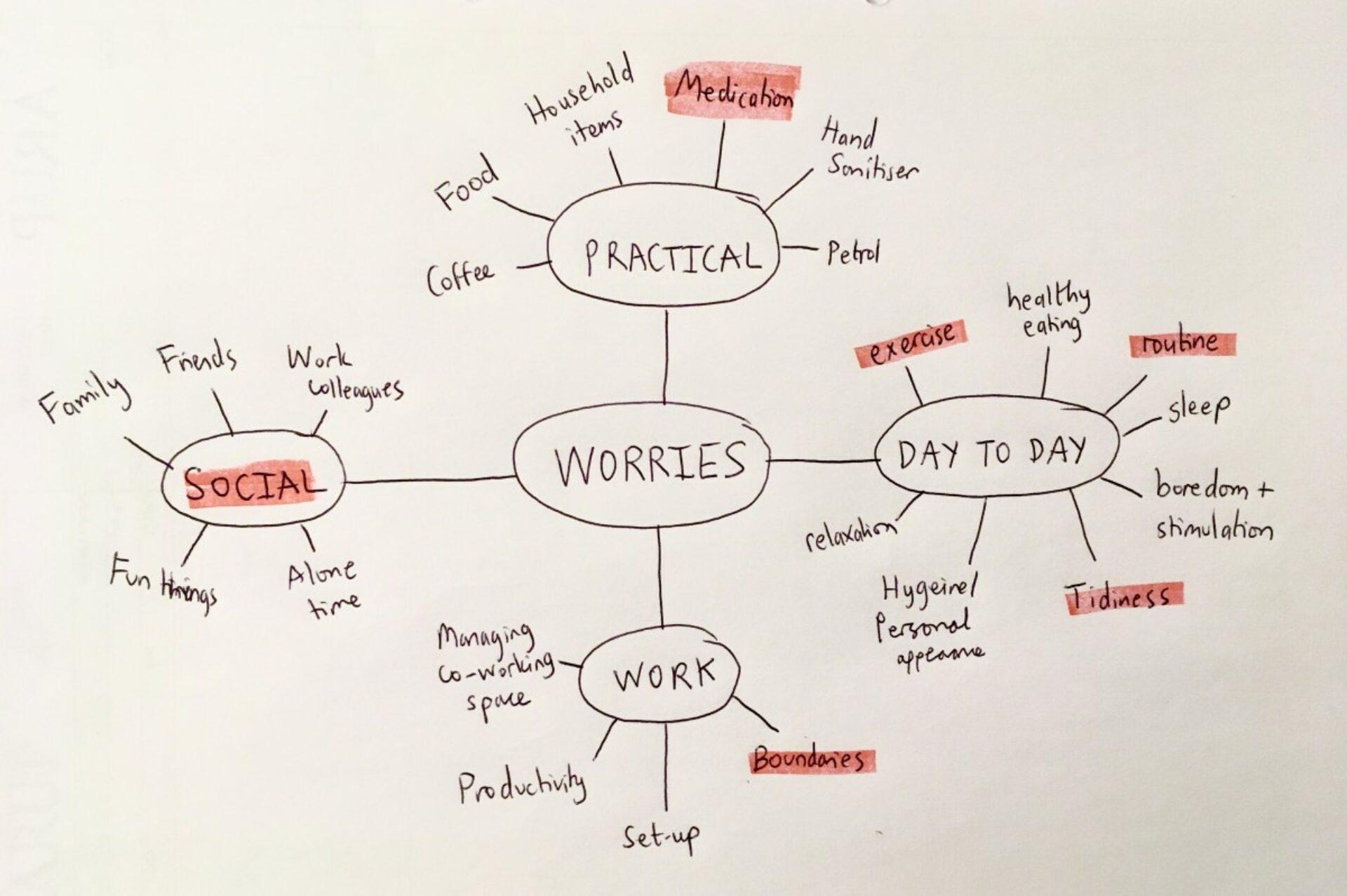Kathryn Watson
Work really helps my mental health by providing me with structure, routine and social interaction. Due to the current COVID-19 pandemic, from tomorrow I’ll be starting to work from home.
I struggle with this at the best of times, so the thought of potentially having to do this for several months made me feel extremely worried. I needed an action plan!
So, I sat down with my husband and together we wrote down everything that frightened us about these huge life changes. Then we prioritised the things that were of the highest concern and talked through how we were going to manage these going forward.
Through this process, I developed a list that I wanted to share as I thought it might be helpful for some of you who might be feeling similarly.
1. Work boundaries – Treat daytime differently to evenings, weekdays differently to weekends
2. Routine – Simulate your weekday routine as much as possible i.e. get up at the same time, work your normal hours, go to bed at the same time.
3. Daily walk – Go for a 15 min walk before and after working to simulate your commute (depending on government guidance) – this will force you to get dressed, will help give you some exercise, will help maintain work boundaries and will help with general wellbeing.
4. Tasty food/drinks – These can really help lift the mood and break up the day. Personally, I’m going to stock up on some good coffee! It’s also a chance to cook that dish you were curious about but never quite had the time to try.
5. Social connections – Make a point of scheduling in some phone or video calls with friends, family and/or work colleagues. Social distancing doesn’t have to mean being emotionally isolated!
6. Fun – Give yourself things to look forward to, such as learn a new language, plan to cook something like a lasagne that takes a few steps, make popcorn and watch a film.
7. Exercise – You’ll probably be going out and about much less than usual so try and do physical movement (even if it is only indoors) – this will help with sleep and general wellbeing.
8. Tidy – Arranging one’s space can be really helpful to feeling calmer and less trapped. As you’ll be spending more time at home: tidy home = tidy mind.
9. Shared accommodation – Organise to do fun things together, for example playing a board game but make sure you have alone time from each other too.
10. Be kind to yourself – Expect that you might not work as productively as normal and that you might be more anxious – reach out if possible whenever you need to.
Kathryn Watson is a Communication’s Officer at McPin. She is also a researcher, artist and former medical doctor, with a particular interest in graphic medicine.
Alongside working at McPin, she produces illustrations of her own mental health experiences at My Illustrated Mind, conducts mental health research with Oxleas NHS Foundation Trust, teaches workshops and does illustration commission work.
Follow her work on Twitter: @myillumind / Instagram: @myillustratedmind
